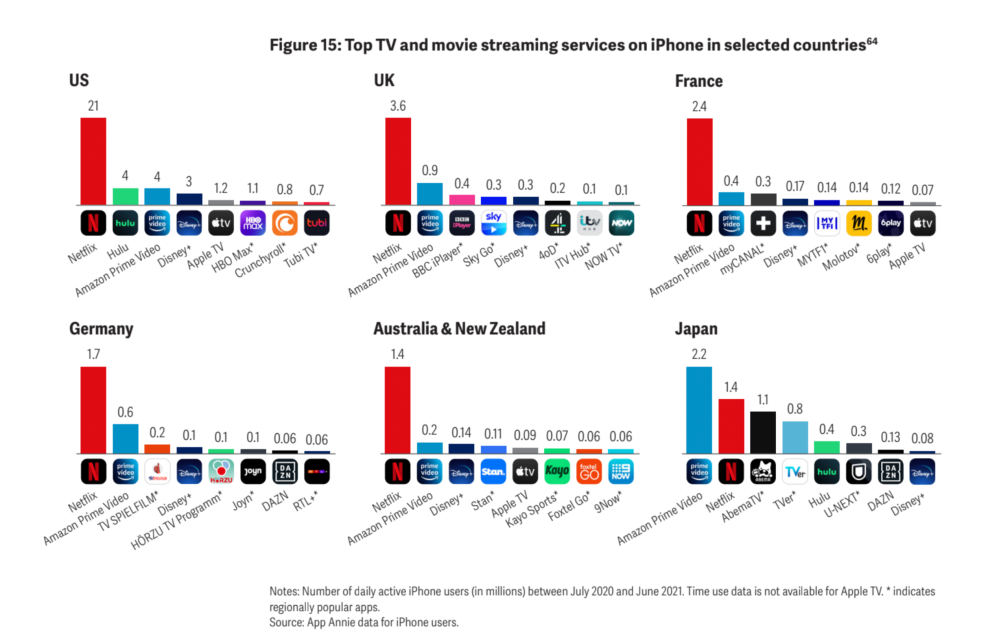
Apple is out with a new press release and report today in which it again touts the success of third-party apps on the App Store. The study, which was conducted by the Analysis Group and funded by Apple, concludes that “third-party apps experience broad regional and global success on the App Store.”
Interestingly, however, Apple is taking the strategy of downplaying the success of its own, first-party apps…
Apple highlights a few conclusions from the report:
- Third-party apps are the only options for consumers for entire types of apps, including social networking, dating services, travel planning, and food and drink.
- Leaders in app types often vary across countries, with many regional leaders outperforming their globally competitive counterparts.
- Third-party apps are the most popular among iPhone users in most regions for major app types, including music streaming, TV and movie streaming, reading, communication, and mapping apps.
- Across many app types, Apple’s own apps account for a relatively small share of app usage among iPhone users. This is the case even though some Apple apps are preinstalled to enable core functionality of the device.
- iPhone users often use multiple apps within a single category, especially apps for communicating, reading the news, watching videos, or navigating — underscoring how easily users can switch between apps and the breadth of opportunity for developers.
More specifically, the report notes the following data in the United States:
- Spotify has 1.6x higher usage than Apple Music
- Netflix 17x higher than Apple TV+
- Wattpad 5.5x higher than Apple Books
- Kindle 4.5x higher than Apple books
Apple says these percentages are based on relative popularity of a local app compared to an Apple app in terms of daily active users or time spent in the app.


9to5Mac’s Take
While Apple has released these studies in partnership with the Analysis Group in the past, this one is particularly interesting. The strategy the company seems to be employing is promoting the competition created by the App Store, but at the cost of throwing its own applications under the bus.
This reminds me of when Craig Federighi gave a testimony as part of the Epic vs Apple legal trial in opposition of side-loading on iOS last year. Federighi explained that Apple does allow the Mac supports downloading from any source, but that the Mac has a level of malware that the company “does not find acceptable.”
It’s an interesting strategy, and it shows just how far Apple is willing to go in its opposition to looming legislation that could bring major changes to the App Store. The company has already been forced to make changes in the Netherlands, while a case in Japan brought worldwide changes for linking to external apps.
Whether or not this strategy ends up prevailing for Apple remains to be seen. What do you think? Let us know down in the comments. You can read the full report right here.





FTC: We use income earning auto affiliate links. More.

Comments